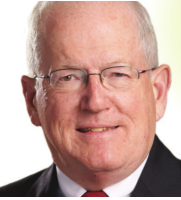A thorough, comprehensive review is needed before moving forward
In the last column, I discussed Governor Sununu’s proposal to merge the boards of trustees of the university and community college systems, pointing out that while economies can be achieved, starting by merging the boards in a budget proposal short on details is the wrong way to do it.
Further analysis presents more reasons to be concerned and urge caution about moving too fast.
As proposed, all of the newly created board members would be political appointees, either directly or by virtue of their governmental positions. This would turn the higher education institutions of the state into something close to state agencies, which the law and history has been careful to avoid in the past. Our public universities and colleges are overwhelmingly funded by sources other than the state budget. The nature of their work and function is very different from provision of state services. Their governance should reflect this. To create a new political board, without any plan about what it is to do, endangers the institutions the board is intended to lead, for a number of reasons.
1. These are academic institutions. Higher education is a complex business, involving special expertise and experience. The boards currently have been structured to involve specialists, along with public members to accomplish that oversight, and they are supported by administrative support to supply guidance.
2. The present boards carefully involve many constituencies that have a stake in the institutions’ history, work and future success. Since 1969, when the effort began with the appointment of the first student observer to the UNH board of trustees, to the enactment of legislation placing students on the UNH and USNH boards, students have had formal input into governance, so their voices will be heard at the board level. What will the thousands of “customers” think if this is swept away in one action? They, after all, provide the largest financial support to the budgets of the institution, far more than is contributed by the state budget.
Since the beginning, alumni of the institutions have been elected to represent their interests on the board; some of the finest trustees have been elected by the alumni, who have a special interest in the success of their alma maters and contribute millions of dollars annually to their support. What will they think? More importantly, how will they react with their contributions if their voice is silenced as proposed?
3. All of the academic institutions are accredited by educational accreditation bodies. In his testimony to the House Education Committee, Ed MacKay, former USNH chancellor and head of
the Higher Education Division of the state Department of Education,
reminded legislators that the composition and functioning of governing
boards is a key component in accreditation of all institutions. He also
said the proposal in the budget so lacks detail, that it could and very
well might endanger that accreditation, which would be disastrous in
terms of attracting students, grants and other support.
One
of the key roles the UNH and USNH boards have played is to insulate the
institutions from political influence and interference.
During
the “red scare” periods of the 1950s and cultural upheavals of the
1960s, politicians repeatedly called for the firing of those on campus
with whom they disagreed. UNH’s board and administration stood firm when
it was
unpopular with some elected officials or, often, the publisher of the
Manchester Union Leader, William Loeb. It is probable that a totally
politically appointed board would be much more susceptible to political
pressure.
Recently, a
number of former trustees of both systems wrote to the Legislature,
urging it to remove the consolidation proposal from House Bill 2, and to
establish a commission to study the matter and report to the 2022
Legislature. “The radical changes proposed in House Bill 2 deserve a
thorough and comprehensive review, which is owed to our students,
citizens and communities.”
Reporting
on the New Hampshire proposal, an article in the Chronicle of Higher
Education, stated, “the experiences of other states have shown that
college mergers are complex and time-consuming even in the simplest of
circumstances, and the benefits they create are far from assured.”
The Legislature needs to hear from students, faculty, alumni and all citizens interested in this issue before action is taken.
It is time to slow down.
Brad Cook is a Manchester attorney. The views expressed in this column are his own. He can be reached at bradfordcook01@gmail.com.